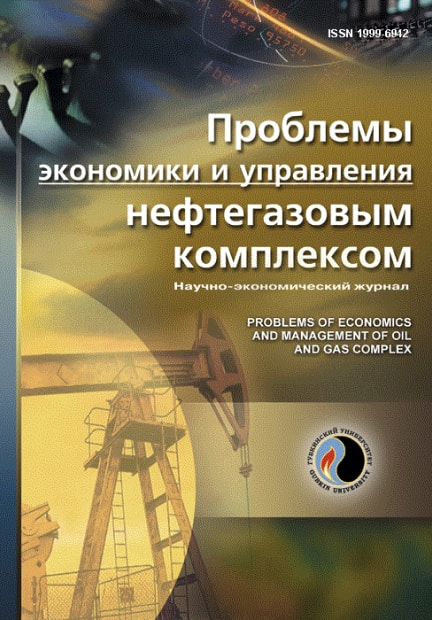Low-carbon technological clusters in the Southeast Asia
UDC: 330.354
DOI: 10.33285/1999-6942-2023-9(225)-56-64
Authors:
MOROZOV VITALY V. 1
1,
MAGOMEDOV TEMIRLAN R. 2
2
1 National University of Oil and Gas “Gubkin University”, Moscow, Russia
2 Illinois University, Shampain, USA
Keywords: the Southeast Asia, clusters, low-carbon energy, hydrocarbons, energy security
Annotation:
The world economic activity is shifting towards the Southeast Asia (SEA), where new international centers have gained strength: China, India, Indonesia, Malaysia, and others. The flip side of the region's active growth is the energy deficit, as a result of which not only oil and gas but also coal, which is losing popularity in other countries due to its unecological nature, is widely used. The area imports the lion's share of its consumed energy sources, which, in the context of the energy transition, raises the importance of the well-known energy trilemma of energy affordability, energy security, and sustainability for the region, which is addressed by the creation of low-carbon clusters in SEA to facilitate the diffusion of innovation, R&D, skilled labor and capital. From this perspective, the authors of the article analyze current regional groupings in Southeast Asia, examine the role of clusters in national economies and energy sectors and consider the examples of cross-border cluster development.
Bibliography:
1. Anbumozhi V. Innovations for a Low-Carbon Economy in Asia: Past, Present, and Future // Low Carbon Transition. – Rijeka: IntechOpen, 2018. – P. 53–72. – DOI: 10.5772/intechopen. 76363
2. Akamatsu K. A historical pattern of economic growth in developing countries // Developing Economies. – 1962. – Vol. 1, Issue s1. – P. 3–25. – DOI: 10.1111/J.1746-1049.1962.TB01020.X
3. Tkachenko I.Yu. Integratsionnye protsessy v Yugo-Vostochnoy Azii // Rossiyskiy vneshneekonom. vestn. – 2014. – № 1. – S. 3–14.
4. About the Greater Mekong Subregion. – 2023. – URL: https://greatermekong.org/about-greater-mekong-subregion
5. Greater Mekong Subregion (GMS). Energy. – 2023. – URL: https://greatermekong.org/g/energy
6. Economic Corridor – Indonesia-Malaysia-Thailand Growth Triangle (IMT-GT). – 2021. – URL: https://imtgt.org/economic-corridor/
7. ACE Annual Report 2022. – ASEAN Centre for Energy, 2023. – 116 p. – URL: https://aseanenergy.org/ace-annual-report-2022/
8. BIMP-EAGA. What is Vision 2025? – 2020. – URL: https://bimp-eaga.asia/index.php/goals/what-vision-2025
9. Can Renewable Energy Certificates Increase Clean Energy Investments in BIMP-EAGA Countries? – 2023. – URL: https://bimp-eaga.asia/article/can-renewable-energy-certificates-increase-clean-energy-investments-bimp-eaga-countries
10. ASEAN Plus Three Cooperation Work Plan 2023–2027. – 2022. – URL: https://aseanplusthree.asean.org/asean-plus-three-cooperation-work-plan-2023-2027/
11. East Asia Summit. Environment & Energy. – 2021. – URL: https://eastasiasummit.asean.org/areas_coop/detail?id=1
12. Tsikhan T.V. Klasternaya teoriya ekonomicheskogo razvitiya // Teoriya i praktika upravleniya. – 2003. – № 5. – S. 22–25.
13. Portanskiy A.P. Klimaticheskaya povestka i protivorechiya mezhdu uchastnikami mirovoy torgovli // Problemy ekonomiki i upravleniya neftegazovym kompleksom. – 2023. – № 3(219). – S. 25–29. – DOI: 10.33285/1999-6942-2023-3(219)-25-29
14. ASEAN Renewable Energy: The Regional Approach: report / Shoon So Oo, M. Merdekawati, Ngoc Huong Giang Vu, B. Suryadi. – 2023. – URL: https://aseanenergy.org/policy-brief-asean-renewable-energy/
15. Small hydropower in Southeast Asia // The ASEAN Post. – 2018. – URL: https://theaseanpost.com/article/small-hydropower-southeast-asia
16. Edianto A.Sh. Unleashing solar and wind in ASEAN. – Ember, 2022. – URL: https://ember-climate.org/insights/research/unleashing-solar-and-wind-in-asean/
17. Aulnette A. Oresund strategy: Denmark and Sweden’s cross-border commuters. – 2018. – URL: https://futurium.ec.europa.eu/en/border-focal-point-network/good-practices/oresund-strategy-denmark-and-swedens-cross-border-commuters?language=sl
18. Mastepanov A.V. Problemy ustoychivogo razvitiya i energeticheskogo perekhoda v energeticheskoy politike Indii i Kitaya i rol' prirodnogo gaza v ikh reshenii // Problemy ekonomiki i upravleniya neftegazovym kompleksom. – 2023. – № 6(222). – S. 35–46. – DOI: 10.33285/1999-6942-2023-6(222)-35-46

